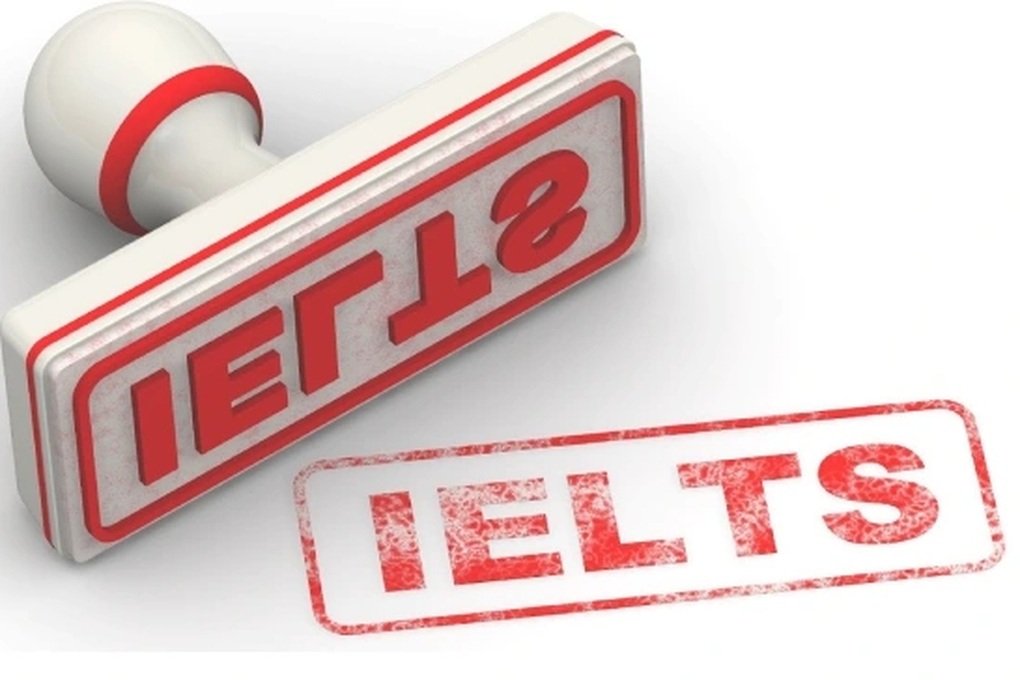
Just a few years ago, IELTS was still the “passport” mainly for those planning to study abroad or looking for international jobs. But now, this certificate has entered the “arena” of domestic university admissions, becoming a popular path for 12th grade students.
At many universities, the number of candidates using IELTS for admission has increased several times compared to previous years. This shift does not happen randomly, but is the result of the resonance between modern admission policies, fluctuations in high school graduation exams, the rapidly developing test preparation market and the increasing awareness of society about the role of foreign languages.
New policy: “Golden ticket” to university
The “trigger” for this wave comes from the regulations on autonomy in university admissions and the regulations allowing universities to convert or add priority points when candidates have international language certificates such as IELTS, TOEFL, etc.
Instead of relying entirely on the graduation exam, candidates can maintain an advantage from before, reducing the pressure of exams. Some universities have applied a specific conversion method into English subject scores or added points to international language certificate scores, for example, IELTS 5.0 is equivalent to 8 points, IELTS 6.5+ is equivalent to 10 points. This "favor" turns IELTS into a "golden ticket" for many students.
Exam preparation market: "Hottest ever"
At the same time, the test preparation market has exploded. Testing organizations such as the British Council, IDP, along with a network of language centers, online courses, and EdTech platforms, have developed rapidly.
Many parents consider this a “two-in-one” investment: serving both the goal of university admission and preparing for future studies, work and study abroad. Intensive exam preparation courses and strategic exam preparation courses have flourished, creating a large-scale educational service industry.
The opportunity gap is growing.
Besides the opportunity to improve foreign language skills, this trend has a big potential drawback: Inequality in access. IELTS test fee is about 4.6-5.3 million VND/time, while test preparation costs can be up to tens of millions, even hundreds of millions of VND.
For families in remote areas or with low incomes, this is a barrier that makes it difficult for their children to compete through this path. When admission opportunities depend heavily on expensive certificates, the gap between rich and poor students is further widened.
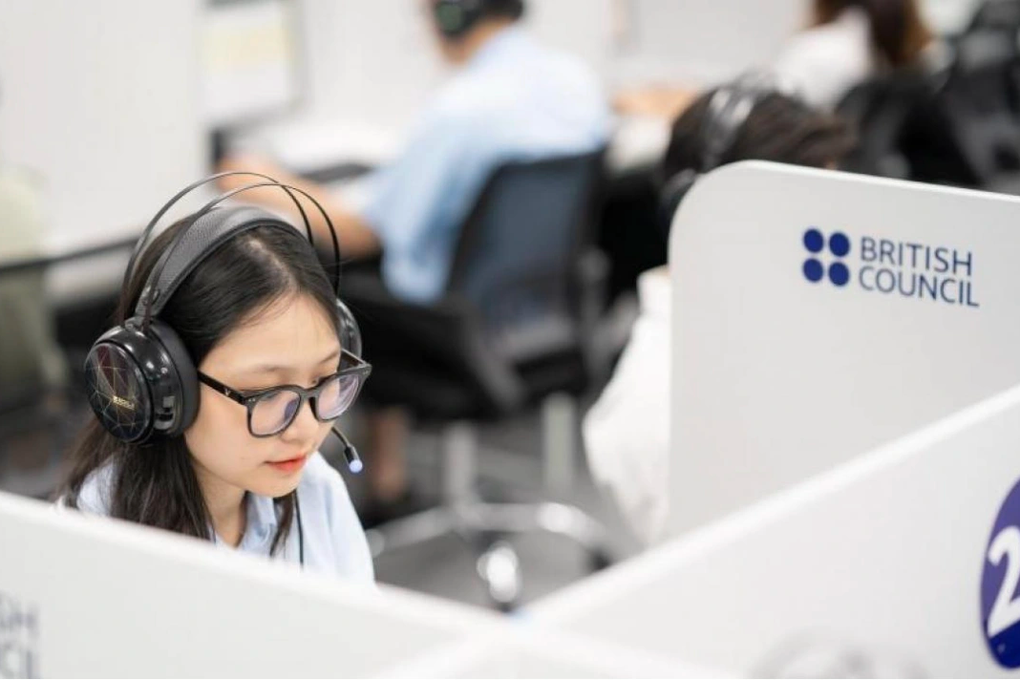
IELTS test takers (Photo: British Council).
“Foreign currency bleeding” from an exam
It is estimated that by 2025 there will be about 300,000 IELTS tests, equivalent to 1,500 billion VND in fees, of which about 85%, or about 1,275 billion VND, will flow abroad. If the number of tests increases by 12% each year, by 2029 this figure could exceed 2,000 billion VND.
This does not include the cost of imported textbooks, native teachers' salaries and many other expenses. A significant amount of money that, if invested in a domestic foreign language proficiency testing system, would create much more sustainable value.
Admission by international certificates: Clear numbers
Not only a few schools apply, but by 2025, many large universities across the country will continue to expand the use of international language certificates such as IELTS, TOEFL or PTE in admission methods.
In addition to schools such as Banking Academy, Hanoi University of Science and Technology, National Economics , Ho Chi Minh City University of Medicine and Pharmacy, Ho Chi Minh City University of Industry and Trade, Ho Chi Minh City University of Industry and Economics - Law... which have increased from 1.5 to 4 times the number of candidates submitting certificates, there are many other universities applying this method.
Schools that accept IELTS 4.0 are Saigon University, Hanoi Capital University, Nha Trang University, Phenikaa University, Phan Chau Trinh University, Vietnam Agricultural Academy... The corresponding English conversion score is from 6 to 8 points, depending on the school.
Most of the remaining schools require IELTS 5.0 or higher, the common conversion level is 7-8.5 points in English.
In particular, with the method of considering international certificates, the University of Commerce accepts IELTS from 5.0 or equivalent. Candidates can convert their certificate points on a scale of 10, and get an additional 0.5-3 bonus points. For example, a candidate with 5.0 IELTS is converted to 10 points, and an additional 0.5 bonus points. Candidates with 7.0 or more are also converted to 10 points and have 3 bonus points.

Candidates listen to admissions counseling at HUTECH (Photo: Xuan Dung).
Similarly, candidates with IELTS certificates when applying to the National Economics University have an advantage when their scores are counted twice. First, the school adds 0.75 points to all candidates with international English certificates, regardless of high or low scores. For example, candidates with IELTS 5.5 or 9.0 will all receive the same 0.75 points.
At the same time, the National Economics University calculates the converted score to a 10-point scale for English certificates. A minimum score of 5.5 IELTS is counted as 8 points; 6.5 IELTS is counted as 9 points; from 7.5 IELTS and above is counted as 10 points.
A series of schools are flexible in recruiting students for mass, high-quality, international programs or priority joint programs or converting IELTS scores according to each level. This mechanism creates favorable conditions for candidates with certificates, but also increases the pressure to take exams to get certificates among high school students.
Integration but must be proactive
The increase in IELTS-based university admissions reflects the young generation’s desire for integration, along with the responsiveness of parents and schools. However, without adjustments, this trend could deepen the educational gap and cause significant foreign exchange losses.
The challenge is to maintain the spirit of integration without becoming dependent. We need a reliable domestic language assessment system, combined with a fair support policy to make IELTS a voluntary choice, an added value, not a “compulsory ticket” to open the door to university. Only then will this trend truly become a long-term benefit for both learners and the Vietnamese education system.
Solutions to promote and minimize limitations
To make IELTS admissions truly a driving force for development instead of a barrier, Vietnam needs to take strategic steps.
First, it is necessary to develop a competency certification exam according to Vietnam's 6-level competency framework to ensure quality and become a "national English exam" that meets international standards, recognized by domestic and foreign universities, in order to reduce dependence on foreign certificates and retain financial resources.
The Ministry of Education and Training should unify the IELTS score conversion framework between schools, helping candidates have a clear direction and ensuring fairness.
Policies to support disadvantaged groups are indispensable: reducing or exempting exam fees, organizing local exam sites and providing free review materials so that all students have equal access.
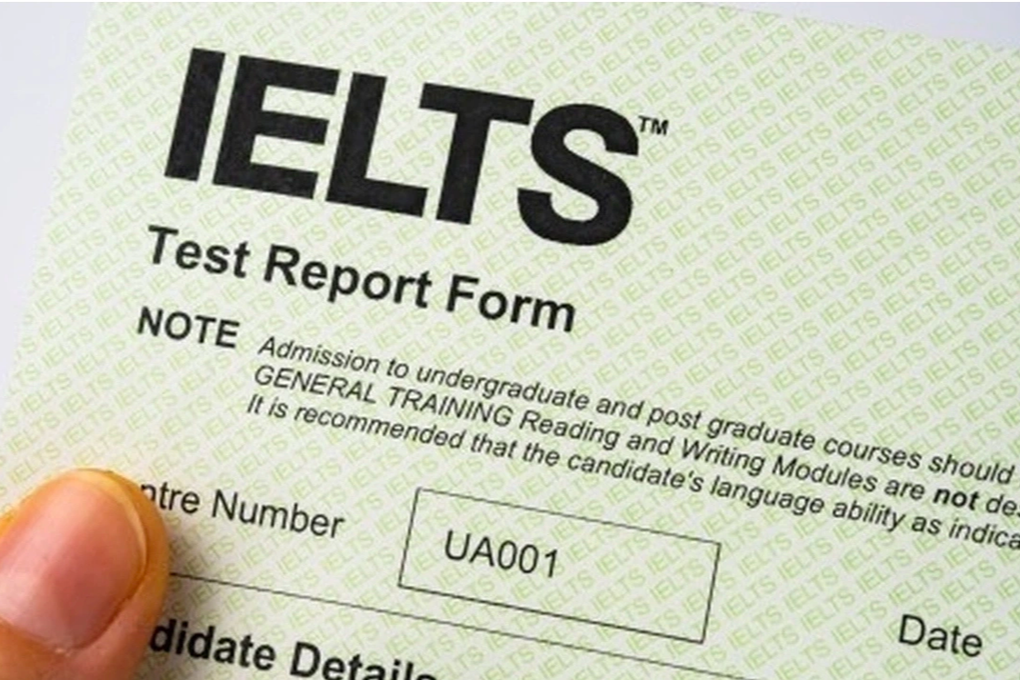
IELTS certificate is one of the popular foreign language certificates used by candidates for university admission (Illustration photo).
Universities should also diversify admission criteria, combining foreign language certificates with proficiency tests, interviews or academic records for comprehensive assessment.
Finally, it is necessary to promote the development of domestic English resources from textbooks, question banks to test preparation platforms compiled and copyrighted by Vietnamese people, which is both cost-effective and suitable for cultural and educational identity.
Thus, what is most needed now is for Vietnam to proactively orient its long-term foreign language training and assessment strategy, instead of reacting to trends or a specific exam.
Building a “Made in Vietnam” exam, if properly invested in, will save foreign currency, increase educational sovereignty and ensure content is suitable for learners.
Integration must go hand in hand with proactivity. Then, the young generation will not only step out into the world with solid knowledge and foreign languages, but Vietnamese education will also maintain a proactive position and develop sustainably.
Dr. Sai Cong Hong
Source: https://dantri.com.vn/giao-duc/bung-no-xet-tuyen-ielts-co-hoi-bat-cong-va-bai-toan-chay-mau-ngoai-te-20250811091147589.htm



![[Photo] Binh Trieu 1 Bridge has been completed, raised by 1.1m, and will open to traffic at the end of November.](https://vphoto.vietnam.vn/thumb/1200x675/vietnam/resource/IMAGE/2025/10/2/a6549e2a3b5848a1ba76a1ded6141fae)






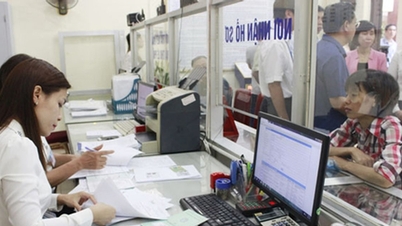









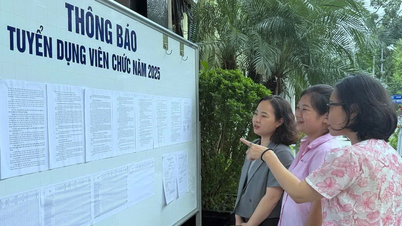

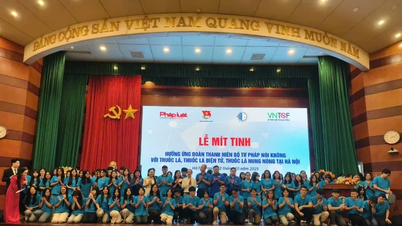

















































































Comment (0)